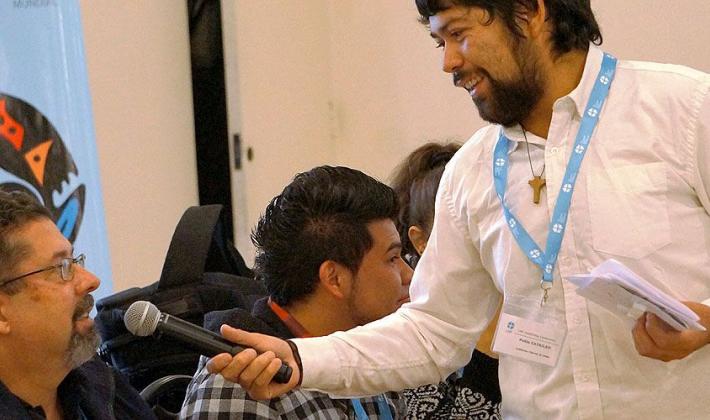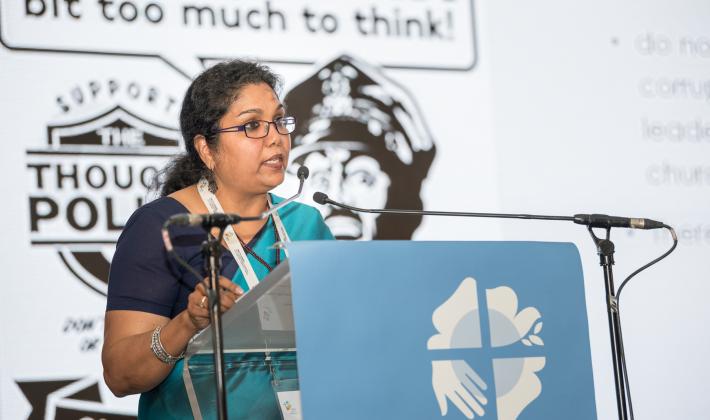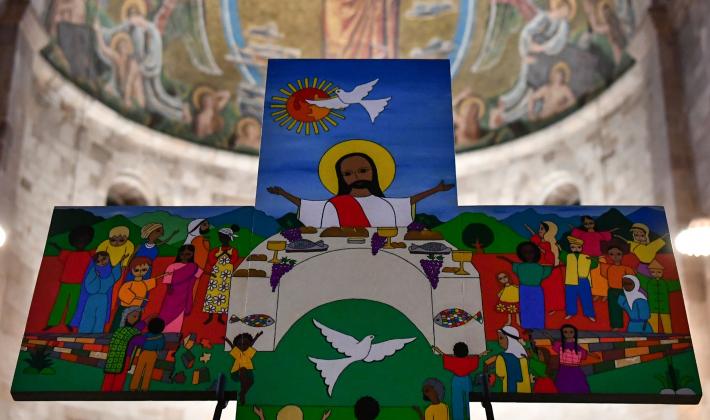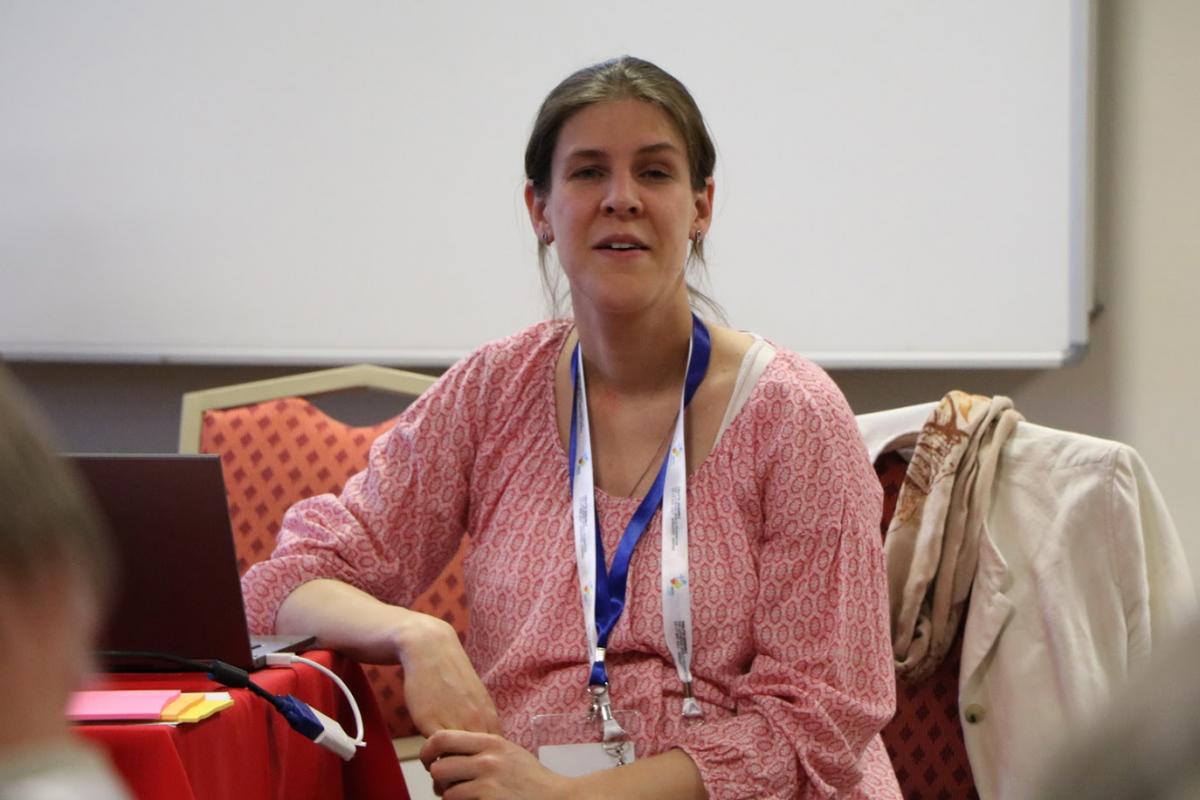
The achievement of all the sustainable development goals requires the participation of all countries, all people and all stakeholders like religious institutions, appealed Julia Brümmer, Lutheran World Federation (LWF) Project Monitoring Officer in the Department for Mission and Development.
Speaking to the Twelfth LWF Assembly participants in a workshop on sustainable development goals (SDGs), Brümmer reminded participants that the church’s role is vital in achieving the global goals since it has advocated and implemented related projects for generations. “Lutheran churches have advocated for justice and gender equality and funded and implemented education and health projects, among others,” she added.
To support the achievement of the SDGs, the LWF Council in 2016 called on member churches to commit to awareness raising on the SDGs throughout the member churches and their communities and to encourage and advocate for relevant stakeholders like nation states and private partners to mobilize resources towards full funding of the SDGs.
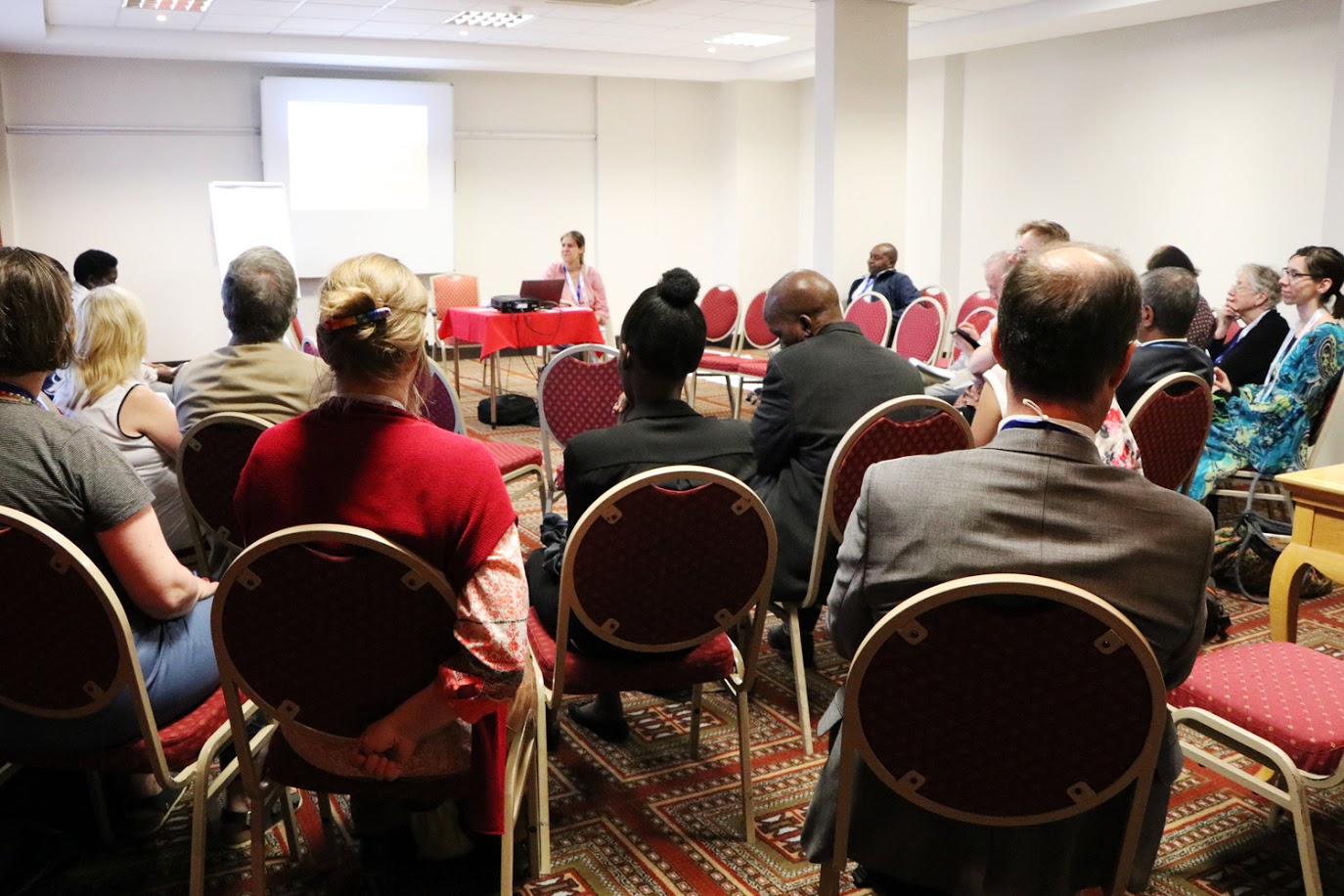
The LWF Council also appealed to member churches to get involved practically in SDG implementation, strategy designing and processes in their own countries, and to also foster stakeholder partnerships, especially with UN agencies, governments and civil society.
“Let’s do the best we can to make the world a better place for all,” Brümmer encouraged the meeting participants.
The “waking the giant” project
Lutheran World Federation in partnership with the World Council of Churches and ACTAlliance are in the process of launching a three-year project—Waking the Giant, to be implemented from January 2018 to December 2020 to support the achievement of the SDGs.
The project will be implemented in seven countries: Tanzania, Liberia, USA, Argentina, Colombia, Philippines and Papua New Guinea. The project will focus on achieving five SDGs: including good health and well-being; quality education; gender equality; reduced inequalities; peace, justice and strong institutions. “The five goals were chosen because they are areas of traditional strength and expertise of the churches,” Brümmer said.
What are SDGs?
SDGs are a set of seventeen global goals with 169 targets among them, established to make the world a better place. They are spearheaded by the UN through a deliberative process involving its 193 member states and global civil society. These have replaced the millennium development goals (MDGs) and are supposed to be achieved by the end of 2030. “SDGs are like old wine presented in a new bottle with a wider perspective,” Brümmer said of the similarity between SDGs and MDGs.
How will the world improve if the SDGs are achieved?
In the case that the seventeen goals are achieved by 2030, the world will be a better place for everyone because poverty and hunger will be no more; inequalities within and between countries will be combated; there will be peaceful, just and inclusive societies; people will enjoy their human rights; gender equality will prevail as well as the empowerment of women and girls. There will be lasting protection of the planet and its natural resources, shared prosperity and decent work for all as well as inclusive and sustained global economic growth.
LWF/Shamim Nalubega

